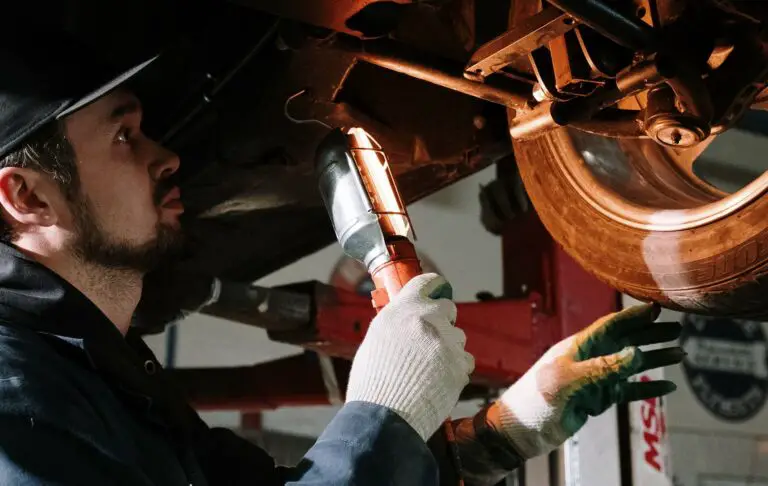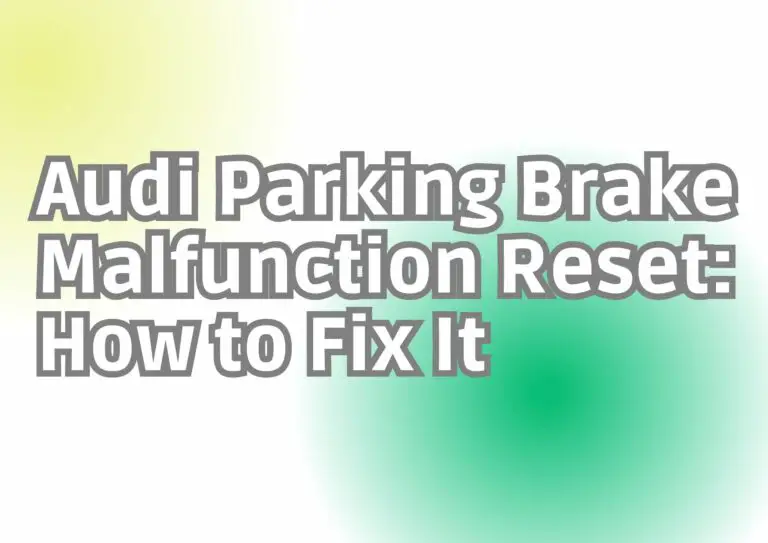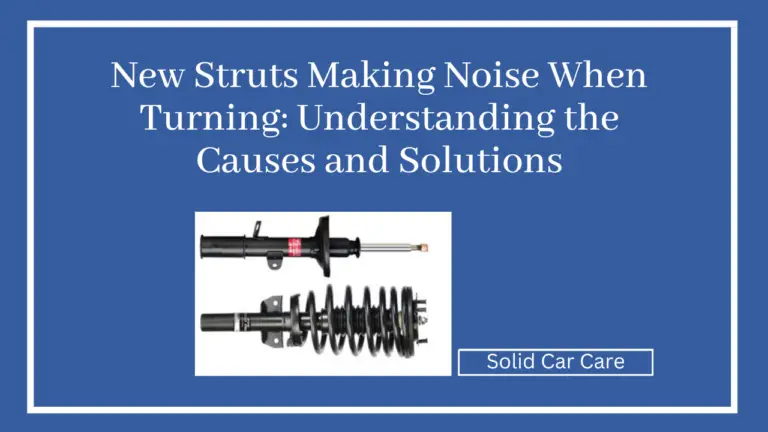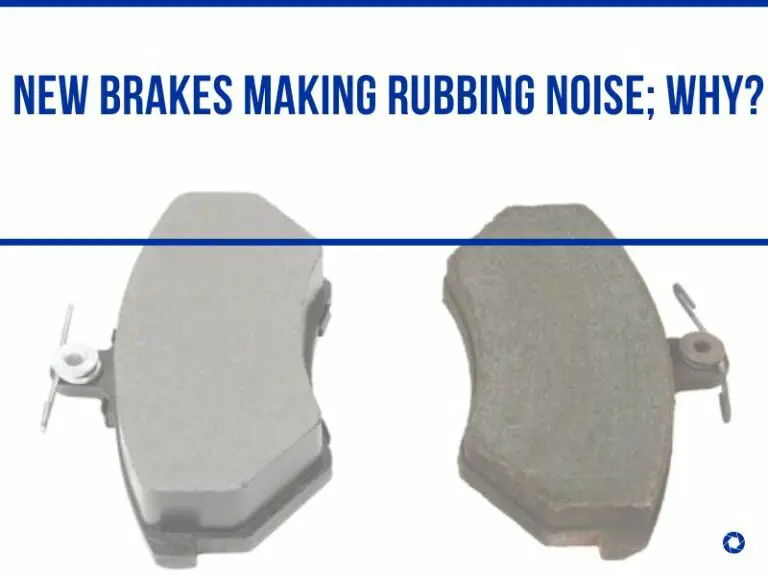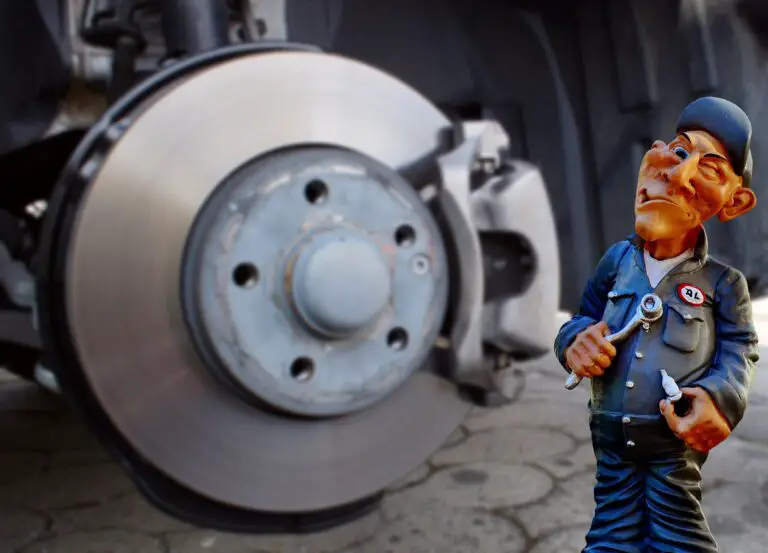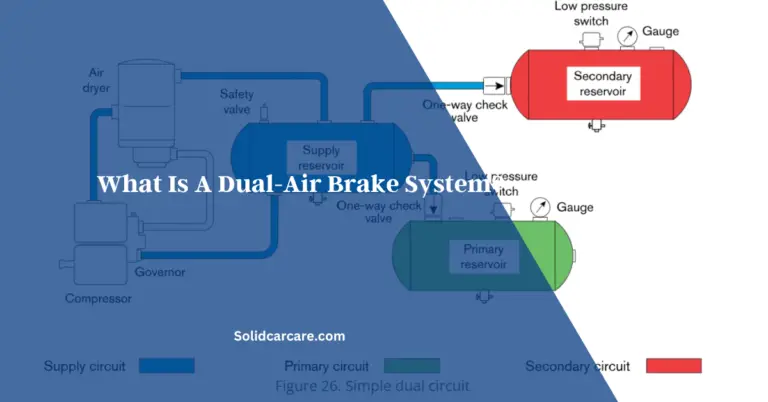Why are brakes making a grinding noise?

Without a doubt, one of the most important aspects of our vehicles’ performance is their brakes. If we offer them proper care and upkeep, they will continue to keep us safe. We know it’s time to get them looked out when we detect changes in their functionality or hear strange grinding noises. We’re trying to figure out exactly what those sounds imply and how to fix the problem.
In two situations, brakes generate a grinding noise. The first is when your brake pads have worn down to the point where the rotor disc and caliper are rubbing against each other. If the friction between the two pieces is not resolved right away, it might cause catastrophic harm. When debris becomes caught between the caliper and the rotor disc, the second problem arises. When the vehicle is moving, this grinding noise will most likely occur.
Table of Contents
- Brake Pads of Poor Quality
- Shims that have been worn out
- Brake Rotors That Have Been Worn
- When brake parts are not lubricated.
- Calipers Bolts
- Improper functioning of Wheel Bearings
- How long can drive with brakes grinding?
- How to stop brakes from grinding?
There are some other common reasons that cause grinding noise in brakes. They are as follows;
Brake Pads of Poor Quality
Aside from performance, cheap brake pads are sometimes poorly constructed, with faults such as metal pieces in the pad material scraping against the rotor and causing serious damage.
Shims that have been worn out
Brake shims that aren’t replaced will wear out over time. A piece of the brake shim may come into touch with the rotor or another metal component of the braking system as a result of this. As you drive the vehicle, you will hear sounds from your braking system due to metal touching metal like this.
Driving Less Frequently Depending on the type of vehicle and driving style, a set of brake pads can last anywhere from 30,000 to 70,000 miles under regular operating conditions. However, if you start having braking issues sooner, it could be because you aren’t driving your car enough. If the rotors aren’t utilized for a long period, such as when a car is stored for the winter, rust will grow on them. Because the rotor is no longer smooth and may have slightly raised portions where the rust grows as a result of the surface rust, you may hear unusual noises from your brakes while driving or braking.
Brake Rotors That Have Been Worn
Brake rotors that are worn or damaged (warped, gouged, or fractured) will generate a variety of noises. Squealing or squeaking noises are produced by bent or non-flat rotors. Scraping noises may be heard instead of the rotors being overly worn.
When brake parts are not lubricated.
When installing brake pads, lightly grease the backside of the brake pads with brake caliper lube. If this easy step is skipped, the metal of the brake pads and the metal of the caliper piston will collide when the brakes are applied, causing screeching or rubbing noises.
Calipers Bolts
If the brake caliper bolts aren’t greased, the slides will make noise if they’re dry. This is a less likely scenario, but it might happen, especially if it’s a do-it-yourself project. At the very least, a reputable vehicle repair shop will lubricate the bolts, and in many cases, completely new bolts will be provided.
Improper functioning of Wheel Bearings
This is most likely the least likely cause of brake noises. If you hear grinding sounds from your wheels or experience sensations that oscillate between loud and quiet, you may have a faulty wheel bearing. Is it safe to drive with grinding brakes?
Our vehicles’ brakes are the single most crucial safety feature. Grinding indicates that something is going on that shouldn’t be going on. If you choose to ignore it, not only will the situation worsen, but the danger will increase as well. As a result, driving with grinding breaks is neither safe nor prudent. Brakes are an essential part of safe driving. Even the tiniest issues can have major ramifications. While your car may continue to run and appear to be in good condition on the surface, any type of brake failure can still result in an accident.
How long can drive with brakes grinding?
It may be feasible to drive the vehicle for a while before the brakes wear out, depending on the severity of the damage. This isn’t a good idea, though, for two reasons:
1. It is not secure.
2. Driving on grinding brakes will exacerbate the problem and raise repair costs.
When you spot a problem with your car’s brakes, it’s always a good idea to have it inspected and repaired. Waiting, on the other hand, is not a good idea. While grinding the brakes may work for a short period if the damage isn’t serious, driving the car in this condition just exacerbates the problem.
How to stop brakes from grinding?
Firstly, make a list of the reasons why you hear grinding brakes. Examine the brake pad, calipers, and starter Bendix for any loose pieces. You can look at a slew of other factors that contribute to noise.
Drivers who have worn brake pads should have them replaced as soon as possible to avoid future, more extensive damage. If you’re familiar with your vehicle’s mechanics, you can try to detect and remove pebbles, metal bits, or other debris wedged between the rotor disc and caliper on your own. Otherwise, make an appointment with your recommended mechanic or car shop right away.

